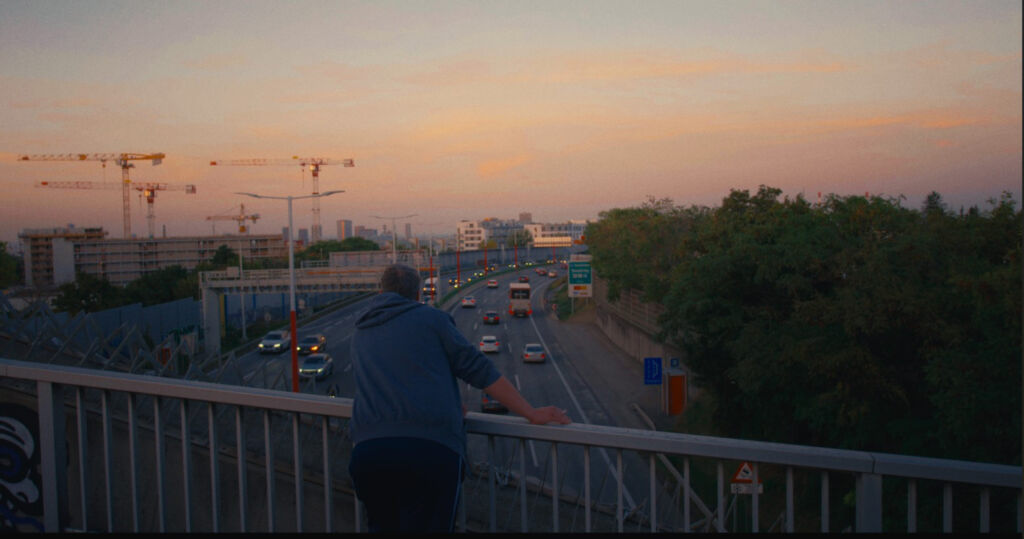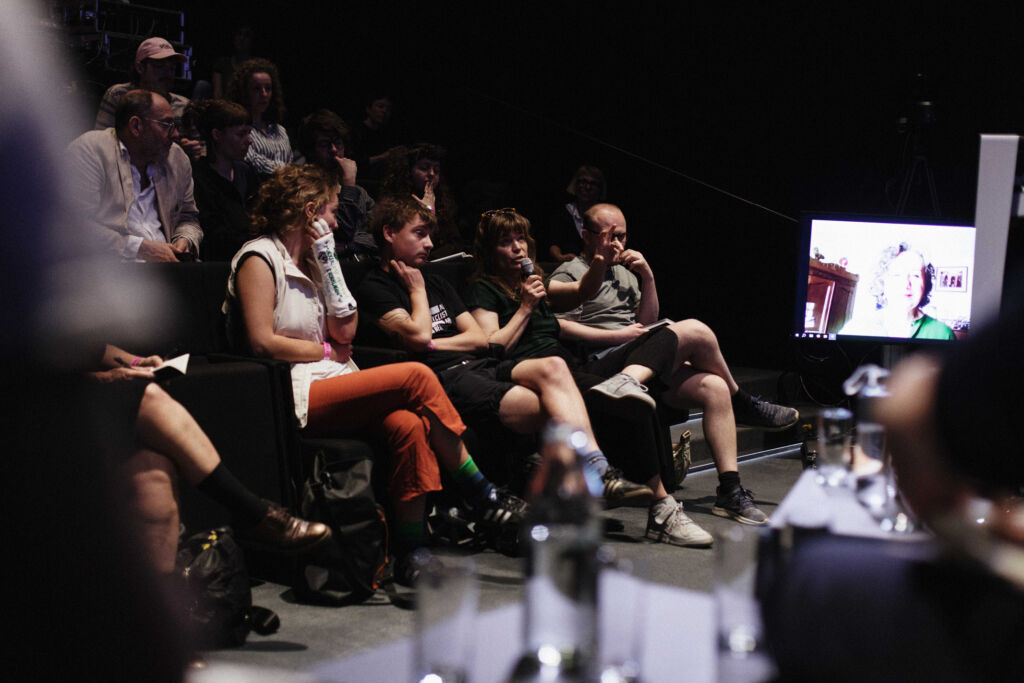Bridging the gaps between multiple fields—specifically, the social sciences and film—as well as between groups within society was the central thrust of the project BUILDING BRIDGES in Polarized Societies: Film – Wien – ArbeiterInnenmilieu – Rechtspopulismus […: Film – Vienna – The Working-Class Milieu – Right-Wing Populism], which ran from 2021 to 2025.This project was led by Barbara Wolfram, a film and stage director as well as a researcher in her own right, and Paulus Wagner, a social scientist whose research is focused on areas including social policy and labour. “In the qualitative social sciences, the point is often to understand people in detail and bring about conversations. Film, on the other hand, is the dominant medium of our times—including in social media, where videos are used to construct identities,” explains Wagner. Discourse by way of such media, he adds, then gives rise to a form of recognition. It’s all about how and whether groups within society perceive and understand each other or fail to do so.

Wagner had conducted around 150 biographical interviews with various working-class individuals prior to this joint project, and Wolfram had previously developed theatrical works based on biographies. “With both of us having already dealt with such themes, the City of Vienna’s 2021 artistic research call came at an ideal time,” says Wolfram. The funding thus obtained enabled them to realise their project over the past few years at Film Academy Vienna, with two short films being the final outcome. The process that led from the biographies captured in the interviews to the finished films was a long one. “It’s about understanding and constructing, but also about remembering. Film is a medium that will be around for a long time and also has an archival function,” explains Wolfram. It makes a difference, she says, just which stories get archived, which memories are actively created, and which aren’t. “We came across a great number of stories that struck us as underrepresented.”
The overlap between the social sciences and film made possible a broader approach to the project’s theme. For both project heads, the focus was on highlighting various life realities and on making films that would be watched and ideally also facilitate dialogue across social boundaries. The first film to be created was Walter L., which celebrated its successful Austrian première in March at the Diagonale Festival. Its plot centres on Walter, a lorry driver whose work is being strongly impacted by the automation of various processes. He suddenly has to coordinate his everyday working life with a machine instead of a person who understands his family situation. On the margins of this film’s events, a parliamentary election plays out—adding a political dimension. It’s not just in Walter L. that labour embodies a central aspect on which much depends. Here, Wolfram and Wagner see a clear spill-over effect: labour not only ensures one’s own existence but also affects social relationships and one’s family, defining important areas outside the workplace, as well. Moreover, labour gives rise to social relationships featuring authority and hierarchy. And: “It was fascinating to us how researching labour is itself labour,” remarks Wolfram—to which Wagner adds, “in a temporary employment relationship, at that.”
The choice of a lorry driver was a deliberate one. While driving large commercial vehicles was still viewed as a respectable and stable occupation just a few years ago, it’s now under pressure from several angles. “In lorry-driving, we hit upon a nexus of transformations—with topics such as automation, migration, wage dumping, electric mobility, and much more all bundled within a single job,” Wagner points out. A special stroke of luck was being able to cast Thomas Frank, who himself drove lorries years ago, in the lead role.
Early March saw them produce their second film, Diana B. Here, the focus is on a woman who works at an employment agency of the Austrian Public Employment Service (AMS). Her consistent devotion to her clients involves considerable self-sacrifice, and the tensions between the rules of the system and the actual needs of women who’ve long been searching for a job have left her on the verge of being crushed. “In the second film, we were interested in the people who hold our system together and in the extent to which personal sacrifice is necessary in order to keep the system functional,” says Wolfram in explanation of their choice of topics.

In order to bring researchers, filmmakers, and authors together in one place to discuss realisations concerning labour, class, and politicisation, a conference entitled “Arbeit – soziale Klasse – Politik – Film” [Work – Social Class – Politics – Film] was held at the mdw in April 2024. This event, which Wolfram and Wagner organised themselves, featured renowned guests from the realms of film and the social sciences such as filmmakers Ken Loach and Paul Laverty (I, Daniel Blake; The Old Oak), director Annika Pinske (Alle reden übers Wetter), sociologist Michèle Lamont (Harvard University), and Didier Eribon, who presented his new book The Life, Old Age, and Death of a Working-Class Woman.
This project and its films brought “lived experience” onscreen and represented social groups in a way that many can understand and, ideally, also identify with. And with their work, Barbara Wolfram and Paulus Wagner have also succeeded in facilitating dialogue between the social sciences and film—thereby “building bridges” in the truest sense.
